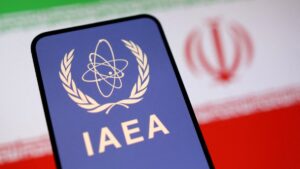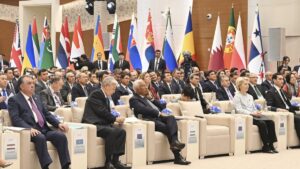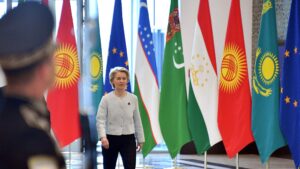Last week, Israel killed five Al-Jazeera journalists in Gaza, among them a prominent Palestinian reporter, Anas Al-Sharif. It was admitted to be a targeted attack, extending even beyond the event, as Israel kept attacking the reputation of the victim posthumously. We were told that al-Sharif was actually not a journalist, but a “Hamas operative,” meaning, as casually defined, a “terrorist.” Of course, no evidence was offered to substantiate this absurd claim, which, even if it were true, would not give Israel the license to murder unarmed people who posed no immediate threat.
Evidence or no evidence, the Western press was quick to fulfill its duty of reporting the Israeli claim, as though doing so would contribute to the context of the news, apart from downplaying the gravity of the crime. In fact, some went even further and started articulating hypothetical questions based on the assumption that the Israeli claims were indeed credible. For example, a BBC reporter apparently did not think twice before uttering the following words in his news coverage: “There is the question of proportionality. Is it justified to kill five journalists when you were only targeting one?”
The BBC might think that it is a scandal of moral and legal philosophy that we still do not have a definitive answer to this question. Perhaps it is not justified to kill five journalists when you were only targeting one. And perhaps it would be justified if you were instead targeting all five together. Or was it simply laziness on the part of the BBC reporter to say “only targeting one” instead of saying “targeting only one terrorist”? Surely, the BBC would not think that targeting even one journalist could ever be justified, nor would it adopt the view that some journalists are terrorists precisely by virtue of their journalism.
The German press did not waste time with hypotheticals, however. In the spirit of German philosopher Immanuel Kant, they went for the categorical. In the headline of its reporting on Israel’s murder of al-Sharif, the bestselling newspaper in Germany and Europe broadly, Bild, described the victim as a “terrorist disguised as a journalist.” Yet the pinnacle of journalism in Europe, always adhering to “professional” standards, did not raise the important question of what disguising oneself as a journalist might really mean. How does one disguise oneself as a journalist? In al-Sharif’s case, all evidence shows that he was extremely busy reporting on the genocide in Gaza for the past two years. Was he disguising, then, as a journalist by the sole means of being a journalist?

And there is a further fact that is often omitted. Just days before Al-Sharif’s murder, Israeli Prime Minister Benjamin Netanyahu conceded that Israel was losing the propaganda war, apparently due to a huge number of “bots” amplifying negative views about Israel. To call it a delusion would be the light, of course. We know that to win back what he called the propaganda war, Netanyahu would have to go after those bots. Instead, he went after actual journalists who, in his judgment, were amplifying negative views about Israel. Recall that the same Netanyahu, not too long ago, revealed that he had been “looking into” whether “a country could sue The New York Times” for the apparent crime of reporting on the starvation in Gaza with rare accuracy. This ultimatum somewhat had worked in that case, for The New York Times issued a preposterous correction to address Netanyahu’s “concerns.” Perhaps the difference was really that al-Sharif did not do the same.
This obscenity is at the heart of “professional” journalism, as it appears. In the absence of a clear and distinct formulation of what seem to be tacitly acknowledged as standards of impartiality, no one can argue persuasively that journalism must not be contaminated with “opinions.” In the coverage of the most abhorrent events, for example, do we expect these accepted standards of impartiality to be upheld, so that the news contains not a single trace of moral judgment? Clearly not. For the presumption that certain “opinions” fail to merit a degree of “impartiality” is itself no more “impartial” in any relevant sense of the term.




















































Be First to Comment